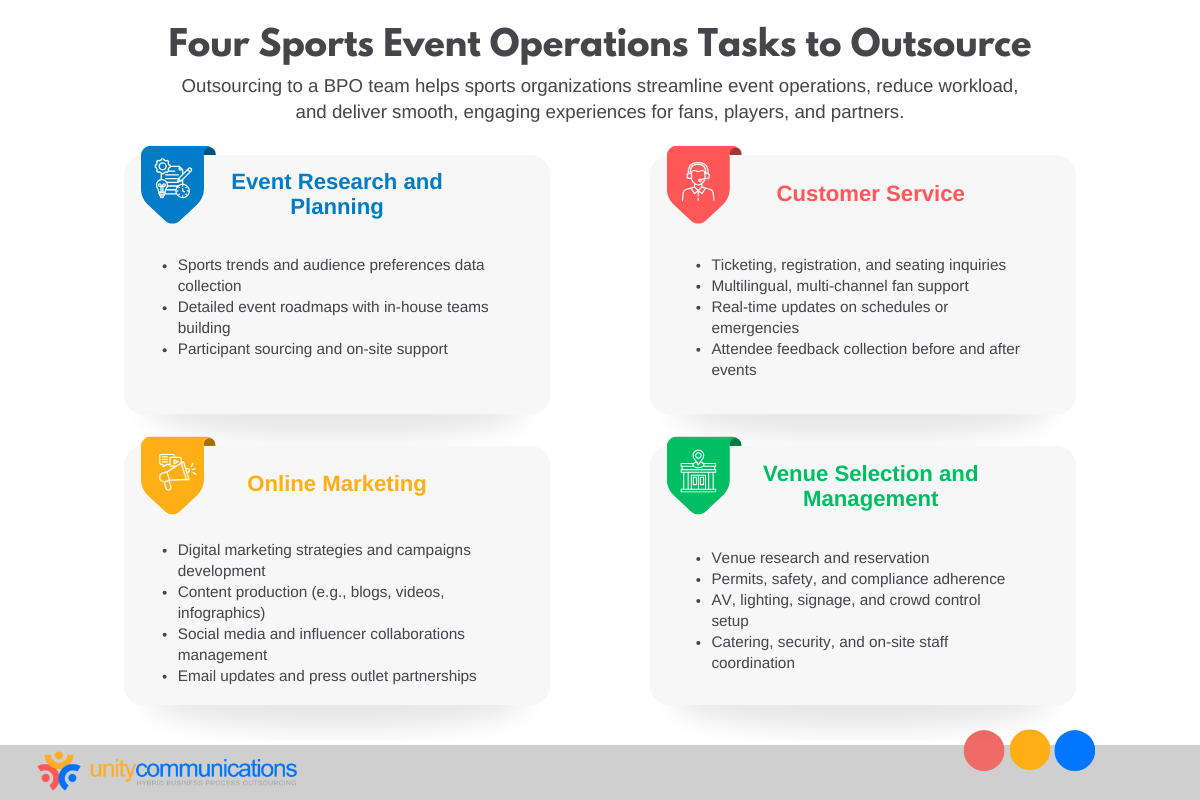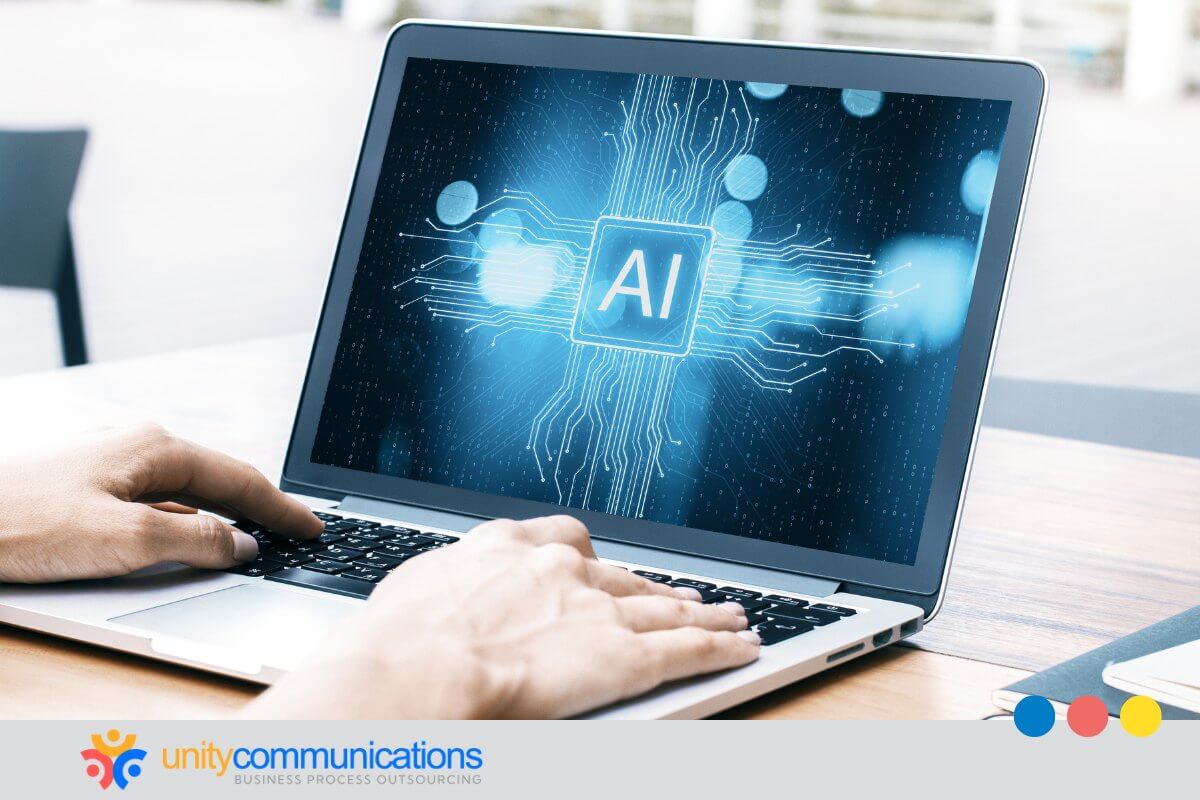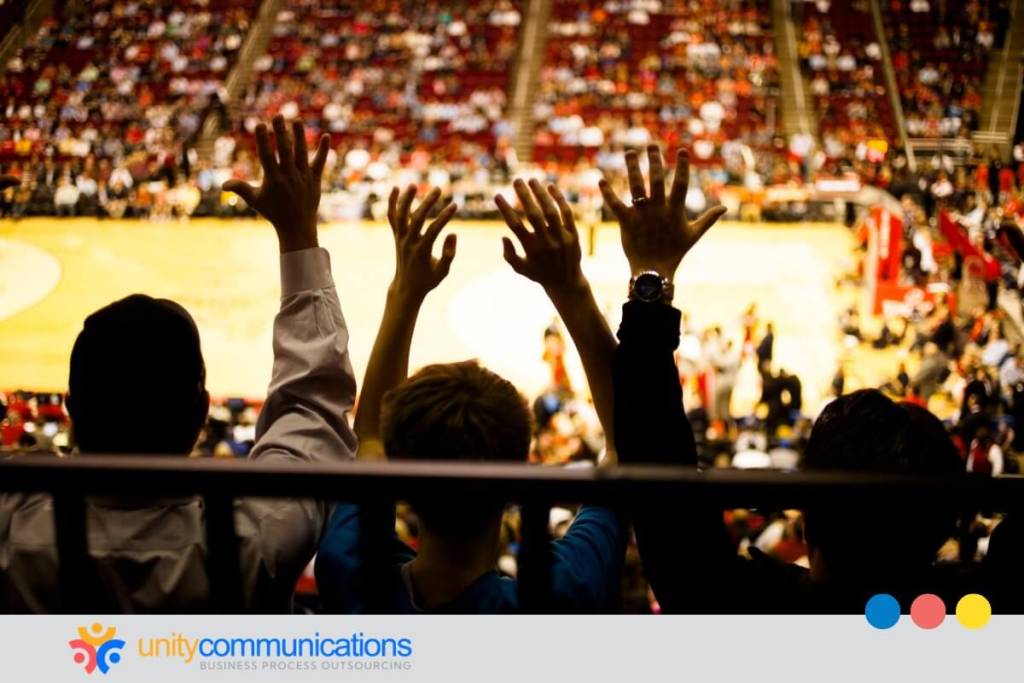Table of Contents
Are you curious about what goes on behind your favorite sporting events? Do you wonder who leads the planning and execution of a successful tournament?
If so, you have found the right page. This article tackles what happens when sports and business process outsourcing (BPO) meet. It helps you understand how BPO earned its reputation as “the sports industry’s unsung most valuable player (MVP).”
Settle in your seats and prepare your cheers as we explore how service providers support sports events, from brainstorming to actual implementation. We will also discuss technology’s contribution to this industry.
4 ways BPO streamlines sports event operations

As you lace up your metaphorical sneakers and step onto the playing field, you must understand what BPO’s role in sports event management is. Imagine a service provider as a coach behind the scenes, calling the shots to ensure a flawless match.
From event planning to execution, providers bring their A-game to streamline operations. They aim to deliver a superior experience for individual players, teams, and fans. Learn how BPO assists in the sports industry’s success in the next section.
1. Lead event research and planning
Support vendors have the resources, capabilities, and tools to spearhead sports event research and planning. First off, they study and familiarize themselves with the sports landscape. They identify trends, preferences, and demands when collecting and analyzing data.
The insights gathered guide third-party and in-house teams in jointly planning sports events such as basketball tournaments or triathlons. They work hand-in-hand to create a roadmap covering every aspect of event operations, from participant sourcing to on-site management assistance.
2. Boost online marketing
BPO organizations play a significant part in boosting the sports industry’s online event marketing. They specialize in strategic digital promotions, helping clients ensure maximum visibility and engagement. Here is how they do it:
- Develop comprehensive digital marketing strategies. This approach includes specifying target audiences and setting up an omnichannel platform to centralize seamless communication and online engagement.
- Produce compelling content. Digital content can include up-to-date articles, blogs, infographics, short videos, and interactive posts. Through these materials, BPO vendors highlight event details, athlete profiles, team performance, and behind-the-scenes activities.
- Manage social media platforms. Statista’s data shows that the total number of social media users reached 4.59 billion in 2022. So, this channel is the most effective way to connect with sports enthusiasts. Providers create and post engaging content on social networks such as Instagram and TikTok to rouse excitement and anticipation.
- Facilitate influencer partnerships. Vendors help clients identify and collaborate with prominent people in the sports and entertainment industries, including NBA stars and famous local athletes. These personalities’ social media presence amplifies the event’s scope.
- Handle email marketing. Third-party teams design email copy and newsletters. They use these materials to send event updates, exclusive offers, and reminders to registered attendees, athletes, and sports teams.
- Maintain press and media relations. BPO companies partner with media outlets to secure press coverage, interviews, and features for sports events. Their responsibilities include drafting press releases and responding to media inquiries.
3. Enhance customer service
BPO firms employ skilled support agents and advanced contact center solutions to enhance customer service for sports events.
According to The Business Research Company, the global sports market expanded from $486.61 billion in 2022 to $512.14 billion in 2023. These figures show how the sector continuously experiences upward growth. Hence, sports companies need a stable point of contact to address inquiries, concerns, and issues from fans and event participants.
Third-party vendors help them achieve such goals by providing seamless customer service from pre- to post-event processes. See how they accomplish this below.
- Offer multilingual support through various channels, such as phone, email, and live chat.
- Provide event details, including ticketing, seating, and other logistical concerns.
- Automate event registration and ticketing processes.
- Assist sports fans in purchasing, upgrading, or transferring event tickets.
- Deliver knowledge bases and automated chats to answer common questions quickly.
- Serve as a point of contact for lost and found services.
- Coordinate and implement accessible services for attendees with disabilities.
- Send out real-time updates for schedule changes, weather advisories, and more.
- Cooperate with event organizers and local authorities to mitigate emergencies.
- Collect pre- and post-event feedback from attendees to identify areas for improvement.
- Resolve post-event issues or apply recommendations made by attendees.
4. Handle venue selection and management
Selecting and setting up venues is another critical role of BPO companies in the sports industry. They optimize their skilled workforce and modern tech to guarantee an enjoyable, action-packed event. They ensure the chosen location meets the event’s requirements in the following ways:
- Assess event needs, including venue accessibility, seating capacity, and sports nature.
- Perform comprehensive research to identify potential venues.
- Negotiate favorable terms and conditions with venue owners or managers.
- Manage legal and permit compliance requirements for the chosen venue.
- Create an optimal layout or map for the event venue.
- Oversee venue logistics, such as equipment transport and material inventory.
- Install audiovisual equipment, lighting, and sound systems.
- Implement safety measures, including emergency exits and crowd control.
- Coordinate with agencies providing services such as catering, security, and sanitation.
- Manage the placement of branding materials, banners, and directional signage.
- Conduct thorough inspections and final checks before the event.
- Deploy staff on-site to guide attendees with venue directions and seating arrangements.
Note that these venue-focused functions of BPO are more convenient through onshore outsourcing. This practice means the provider and its client operate in the same country. Onshore BPO teams specializing in venue management work well with in-house event organizers for the following reasons:
- Regional proximity enables easier site visits and regular physical meetings.
- Cultural and language alignment minimizes misunderstandings.
- Time zone synchronization reduces communication and decision-making delays.
- Familiarity with local policies avoids security and compliance issues.
- The service provider’s established local networks help secure relevant contracts immediately.
How BPO uses artificial intelligence (AI) in the sports industry

In addition to human expertise, service providers leverage AI to accelerate repetitive sports event tasks. AI-powered technologies automate rule-based functions, including data entry and ticketing services.
This capacity lets human employees focus on the most pressing processes, such as face-to-face engagement with athletes and sports teams. The succeeding details show how providers harness AI to boost sports event management.
- Analyze historical attendance data and local trends quickly for logistics purposes.
- Predict ticket sales and merchandise demand to ensure sufficient supplies.
- Categorize event attendees based on preferences, behaviors, and demographics.
- Monitor social media interactions to gauge public opinion and adjust strategies.
- Engage the audience during breaks with AI-driven interactive features such as live polls.
- Track traffic patterns around the venue to suggest the most efficient routes for attendees.
- Deploy AI-powered facial recognition systems to strengthen event security and safety.
- Process data from sensors and cameras to identify emergencies such as crowd surges.
Ultimately, BPO companies use AI to advance customer support in the sports industry. They use AI-powered chatbots to handle routine inquiries. These bots instantly respond to sports fans about event details, ticketing, and other common questions.
The tech brings significant cost savings to clients as it lessens the need to hire many support agents. Because of such convenience, roughly a quarter of organizations are expected to use chatbots as their primary customer service channel by 2027.
The bottom line

Amid every cheer and score in a sports event, BPO providers play a crucial role in delivering unmatched experiences for fans, athletes, and teams. From event planning to venue management, service providers ensure the processes behind the game run smoothly.
AI optimization further boosts third-party vendors’ efforts to deliver uninterrupted athletic tournaments. Whether to streamline logistics or ensure safety, the integration of AI eases overall sports event operations.
Let’s connect if you need a provider with expertise in digital marketing, customer service, and planning. Unity Communications employs skilled workers and robust solutions to help streamline the front- and back-office aspects of your sports event.




